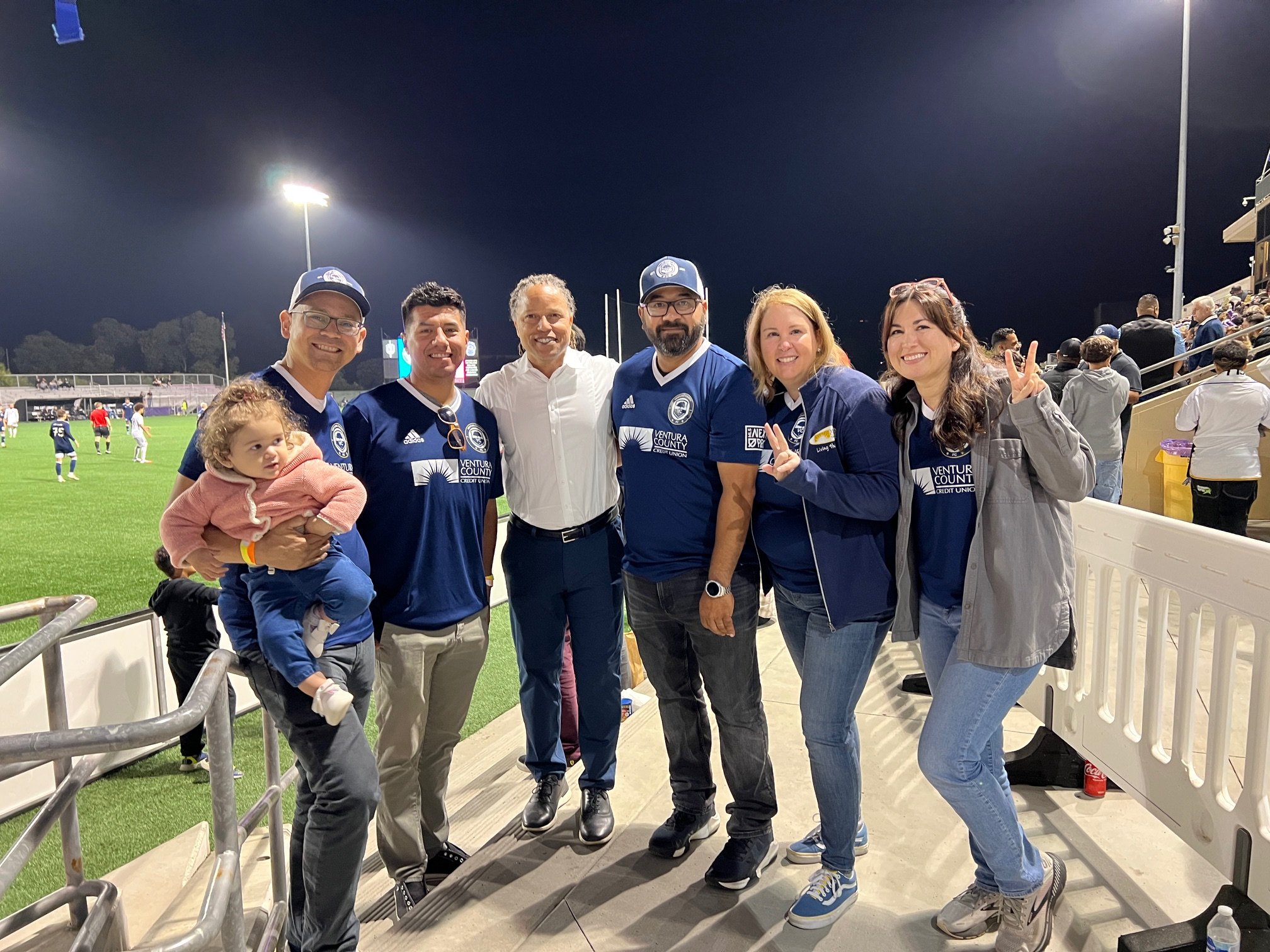NEW YORK CITY-Mondays normally are quiet days at the Lower East Side People's FCU (LESPFCU). Because the credit union is closed to members, this is the day of the week when staff catch up on paperwork and other administrative tasks. But on this particular Monday in February, LESPFCU's lobby is bustling-filled with people seeking free assistance in preparing their 2003 taxes. As a member of the New York City Financial Network Action Consortium (NYCfNAC), LESPFCU is one of three credit unions in Manhattan that has opened Volunteer Income Tax Assistance (VITA) sites to serve the low-income community. The Internal Revenue Service oversees the VITA program. To qualify for free tax-preparation assistance, individuals must have an annual income less than $19,000; families must earn less than $35,000. "This is such an important program for credit unions to know about," says Pablo DeFilippi, CEO of LESPFCU. "The long-term payoff is amazing, particularly in terms of building up the loyalty of people you are serving and in outreach to the community." Current tax-assistance efforts undertaken by the NYCfNAC members-LESPFCU, as well as Homesteaders FCU and Union Settlement FCU (both of which are located in Harlem)-actually grew out of a program the previous year to promote awareness of the Earned Income Tax Credit (EITC), the nation's largest antipoverty program. According to Peter Bray, executive director of NYCfNAC, the group was sparked by several startling findings from a Brookings Institution study released in May 2002: In 1999, more than 200,000 families in New York City alone were eligible for but did not claim either the federal or state EITC-resulting in the loss of approximately $500 million in tax refunds. Of the $1 billion provided to New York City families through the EITC, more than $300 million was used to pay tax-preparation and electronic-filing fees, as well as interest charges on rapid-refund loans through commercial tax-preparation firms. Of the $30 billion refunded nationwide to low-income families through the EITC program, an estimated $1.75 billion was paid to commercial tax-preparation firms. "It's a perfect area where credit unions can play a positive role," Bray says. "Our solution was to educate our communities about the dangers of commercial tax preparers, to educate them about the EITC program and to inform them about better alternatives, such as VITA sites." In addition to promoting EITC education, coalition members worked with existing VITA sites to recruit new credit union members and provide direct-deposit services for refunds. And because no VITA sites were located in the lower end of Manhattan, LESPFCU took it upon itself to become VITA certified. "We called the IRS direct, and they were willing to give us their support even though it was late in the game," DeFilippi says. "We weren't hoping for much [in terms of the number of applications processed], but in the end, we filed nearly 300 returns. The response from the public was amazing." Building on LESPFCU's success with its VITA site, the coalition's goal for the new tax season was to establish operations at each credit union location. To assist in the process, NYCfNAC raised $70,000 in funding from various sources, including the National Credit Union Foundation and the New York Community Trust, to cover several expenses: The hiring of a VITA site manager at both the Homesteaders FCU and Union Settlement FCU locations The production and printing of outreach materials The organization of basic financial education workshops conducted by the Neighborhood Economic Development Advocacy Program The costs associated with recruiting and training volunteers to staff the VITA sites Of the 100 volunteers recruited by NYCfNAC, 60 actually went through the IRS training program-accounting for one-fifth of all volunteers trained by the IRS in New York City. "I've always thought of New Yorkers as being a fairly grumpy lot," Bray says, "but our volunteers really changed my opinion. And they come from all walks of life in New York-accounting students, bank employees, business school students, law students, credit union members and just the average New Yorker who saw our postings for volunteers and responded. A fair number of them also are bilingual-in Spanish and Chinese dialects-which is important." "The volunteers have truly been wonderful," says Lillian Bent, manager of Union Settlement FCU in East Harlem. "Every one of them is so professional, and they treat the membership and everyone else who comes in like gold." In addition to establishing their VITA sites, each credit union also is hoping to file 1,000 tax returns. And, as a group, they hope to enroll 2,000 new credit union members-twice as many members that enrolled last year. "We're pretty optimistic about our target," DeFilippi says. With assistance from several other individuals and organizations, LESPFCU has opened a second VITA site in conjunction with the New York City Housing Authority. LESPFCU also is the first credit union to request and receive a grant from NCUA to help offset its operating costs. "The VITA program not only saves taxpayers from losing a large chunk of their refund," NCUA Board Member Debbie Matz said at a recent event kicking off the opening of LESPFCU's sites for the new tax season. "It also helps low-income members build wealth by starting low-cost savings accounts at a credit union and claiming all the tax credits they have earned." Homesteaders FCU also has partnered with another organization in the hopes of reaching more people. In addition to operating its site at the credit union in Central Harlem, it also sends staff members to open accounts at a site operated by the Community Food Resource Center (CFRC) in West Harlem. CFRC is one of the largest providers of free tax services in New York, with 10 VITA sites throughout the city. "It certainly takes a lot of work and organization, but we're definitely having an impact," says Trina Heizman, manager of Homesteaders FCU. "That's money we're putting back into people's pockets and back into the local community." Union Settlement FCU currently operates only in the public spaces of its sponsor's facility in East Harlem, but creating that location was a critical service for both credit union members and the local community. In only a few weeks, staff and volunteers have processed returns eligible for more than $200,000 in refunds. "It's rewarding for us as a credit union to give this little bit of assistance-and they don't have to travel around the world to get it," Bent says. "People are appreciative of our Saturday appointments and the fact that they don't have to sit here all night waiting for help. The experience also has opened our eyes to a lot of new opportunities. The staff is getting to know people they've never met before. We're learning things we never knew about taxes before. And people are surprised to learn that the credit union is here and surprised at the vast number of services we offer." While VITA site operations will continue through April 15, NYCfNAC's efforts don't stop there. The coalition will continue to sponsor financial education workshops. The group also has partnered with McGraw Hill through its Writers to the Rescue program, whereby two volunteer writers are preparing a series of 1,000-word articles in easy-to-understand language about topics ranging from "Why is financial planning important?" to "What is a savings account?" Materials will be translated into Spanish as well, distributed to the credit unions and be put on a Web site for downloading. "We have nine articles right now," Bray says. "But, we probably have enough material for 50 articles. Hopefully people will find them educational." The organization also is doing research into other products and services credit unions can offer their members, such as Individual Development Accounts (IDAs) that can help low-income individuals develop savings credits for retirement. "People need to learn how to build assets," DeFilippi says. "They need to develop long-term goals and, rather than spend their money all at once, learn to save money to buy a home, start a small business, finance their children's education. Hopefully, through our efforts, we will be doing something to help them to change their lives." -
Complete your profile to continue reading and get FREE access to CUTimes.com, part of your ALM digital membership.
Your access to unlimited CUTimes.com content isn’t changing.
Once you are an ALM digital member, you’ll receive:
- Breaking credit union news and analysis, on-site and via our newsletters and custom alerts
- Weekly Shared Accounts podcast featuring exclusive interviews with industry leaders
- Educational webcasts, white papers, and ebooks from industry thought leaders
- Critical coverage of the commercial real estate and financial advisory markets on our other ALM sites, GlobeSt.com and ThinkAdvisor.com
Already have an account? Sign In Now
© 2024 ALM Global, LLC, All Rights Reserved. Request academic re-use from www.copyright.com. All other uses, submit a request to [email protected]. For more information visit Asset & Logo Licensing.









